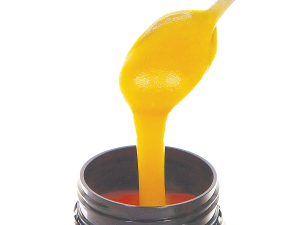Initiative brings scientists and farmers together
An initiative by the Ministry for Primary Industries (MPI) to connect farmers with scientists is taking off judging by the response at recent regional field days.
 Manuka honey can only be sourced from and produced in New Zealand, according to the Manuka Charitable Trust. Photo Credit: NZ Manuka Honey Facebook Page
Manuka honey can only be sourced from and produced in New Zealand, according to the Manuka Charitable Trust. Photo Credit: NZ Manuka Honey Facebook Page
A recent Plant & Food Research study comparing the DNA of trees commonly called manuka in New Zealand and Australia has found such significant genetic differences between the two that the researchers are now recommending the two plants be designated as different species.
With research funding from Te Pitau Ltd, the operating arm of the Mānuka Charitable Trust, Plant & Food Research and the Department of Conservation, mānuka samples were collected in Tasmania and in New Zealand with permission from Māori landowners.
Analysing 2000 variable DNA markers called ‘SNiPs’ (single DNA letter changes) in the DNA from each plant from both New Zealand and Tasmania, nine family clusters corresponding with different geographic regions were identified in New Zealand and two in Tasmania.
“The SNiP is DNA variance between two individuals and we detect where they are across the chromosome of manuka, string them across populations and curate the frequency of each variant across populations,” said report co-author Dr David Chagne. “When you add up the differences in frequency between variety across each chromosome and between populations… it can tell you how much difference is between populations versus differences within those populations.”
The study found the New Zealand clusters were more closely related than those found in Australia, with evidence of recent cross breeding. The genetic differences suggest that New Zealand and Australian mānuka diverged 9-12 million years ago.
Chagne said that the several distinct clusters in New Zealand showed the normal genetic spread from families spread across a wide geographic area. “The two Australian clusters, while related to each other, are vastly different genetically and could potentially be classified as different species.
“We measured the FST (total genetic variance) between NZ and Australian populations above 35%; the same sort of FST values between nashi and European pear, which are considered different species. That gives an extent of how different the leptospermum trees in Australia are from New Zealand.”
With the researchers noting the results had significant cultural and commercial implications- especially for products derived from each species, including honey- Mānuka Charitable Trust (MCT) chair Pita Tipene says this provides further evidence of the claim that mānuka is a recognised taonga (treasure) under the Treaty of Waitangi and its honey can only be sourced from and produced in Aotearoa New Zealand.
“Mānuka is a Māori word and tree that belongs to us. The expropriation of the name ‘mānuka honey’ to a plant or natural product from outside Aotearoa is taking the identity and associated epistemology of our culture, our knowledge and what we believe in, and being used in a way that’s misleading. What’s more, it’s ignoring the original names developed over thousands of years of history of the Aboriginal peoples of Australia.”
Chagne stresses that although some funding from the study came from the MCT, the results are objective and free of conflict. The chair of the UMF Honey Association, Rob Chemaly says “Origin matters because people buy ‘mānuka honey’ as they see the value in origin and terroir, particularly when it comes to natural products.
According to the latest Fresh Produce Trend Report from United Fresh, 2026 will be a year where fruit and vegetables are shaped by cost pressures, rapid digital adoption, and a renewed focus on wellbeing at home.
The Roar is a highlight of the game hunting calendar in New Zealand, with thousands of hunters set to head for the hills to hunt male stags during March and April.
OPINION: The past few weeks have been tough on farms across the North Island: floods and storms have caused damage and disruption to families and businesses.
European dairy giant Arla Foods celebrated its 25th anniversary as a cross-border, farmer-owned co-operative with a solid half-year result.
The sale of Fonterra’s global consumer and related businesses is expected to be completed within two months.
Fonterra is boosting its butter production capacity to meet growing demand.